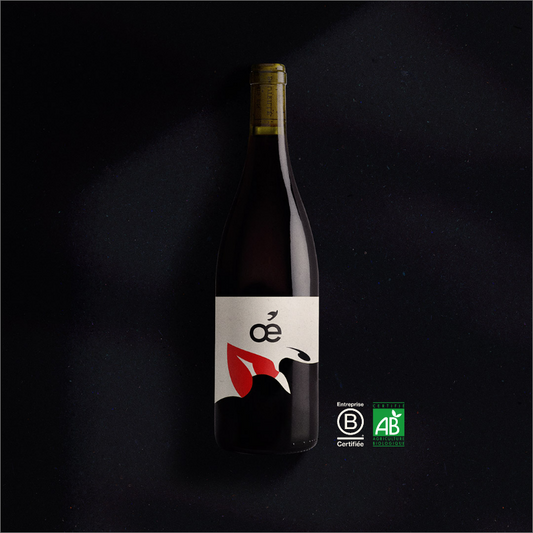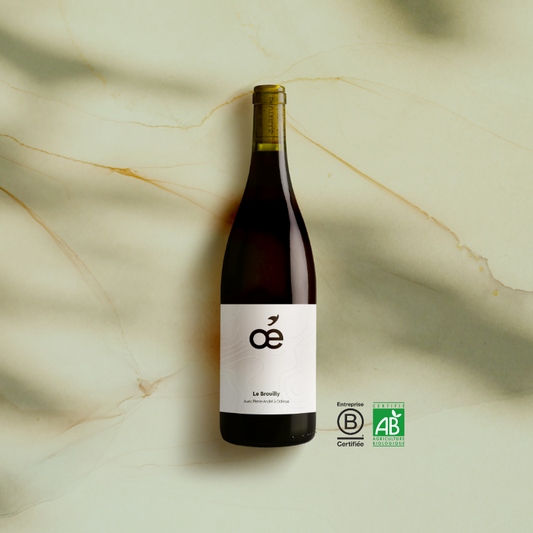How is organic wine made?
“Do you know how to plant cabbage, fashionable, fashionable
Do you know how to plant cabbages, in our own way?”
For us, organic wine is more than a fad, it's a passion so let's talk a bit about its production!
Making organic wine: organic viticulture
Viticulture is the cultivation of the vine . To produce good wine you need good grapes , and to get good grapes you have to grow them well !
The vine is part of life and, like us, it can fall prey to certain diseases. When we have a headache, we all know the life-saving Doliprane. The foot of Cabernet-Sauvignon has a little more difficulty in swallowing its cachet...
Sometimes certain fungi , insects or weeds do not promote the growth of vines . So to help the plants, winegrowers have been using different techniques since the dawn of time to take care of their vines . To protect their vines from the cold, for example, some winegrowers use candles ! Who would've believed that ? and it offers a magnificent spectacle.
Weeding each plan by hand represents a titanic task, so to save our backs and protect the vines , we turned to phytosanitary products .
For the moment culture, “phyto” means “plant” and “sanitary”, which relates to health.
In organic viticulture , the winegrowers do not treat the soil and the vines with chemical pesticides . They use natural elements like copper or sulfur which are more environmentally friendly.
On the other hand, for conventional wines , winegrowers can afford to use chemical phytosanitary products . These chemicals work very well in the short term to protect the vines because they are very aggressive but destroy the planet. These pesticides and herbicides are so effective that farmers who use them have to replace their natural plants with GMOs (genetically modified organisms) to make sure they don't die during the spraying of chemicals . It's a little weird to be protected by a product that can kill us, isn't it?
The use of natural techniques requires more patience and investment but guarantees better soil quality and healthier wine . Fortunately for the planet, committed winegrowers are fighting for a reduction, or even a total abolition of chemical phytosanitary products to protect vineyards . The vines of organic wines , natural wines and biodynamic wines are healthier and that's why we love them!
Making organic wine: organic vinification
A healthy grape in a healthy wine!
In 2012 we were told the end of the world, remember? Above all, we saw the beginning of a new world for organic wine! Yes, at the beginning of February 2012, the European regulations for labeling organic wine added a string to its bow, winemaking.
For winegrowers already committed, it is only a formality because one can be committed without being obliged to do so, but it ensures that future generations are getting into the good and the organic from the grape to the wine. Yes, until now, the certifiers wrote on the labels of the bottles “ wines made from grapes from organic farming ”. Now we are guaranteed to have an organic wine until vinification.
To obtain the “ AB ” labels in France and “ European Bio ” in Europe, the winegrower follows specifications which include, among other things, the limitation of sulphites but also the prohibition of certain techniques such as the partial dealcoholization of wines , treatments with electrodialysis … only inputs of natural origin are authorized for certified organic vinification . For example, the winegrower uses indigenous yeasts , that is to say of natural origin, which are found on the skin of the grapes and even on the frames or the stones of the wine estate. It's crazy isn't it? Well, that makes it possible to bring a real typicality of the terroir to the wine rather than using selected yeasts .
We put you just here the table of the content of sulphites per liter of our wines which are clearly lower than those imposed by the organic regulations and are closer to those made in biodynamics , even those of a natural wine . Less sulfites means less headaches and even more pleasure, so why deprive yourself? ;)
The making of organic wine: love of the land
Each organic wine producer approaches the production of their wine in their own way. We have many agents of change in France who want to shake up the lines and promote healthier sustainable agriculture . Here is a small list of figures of organic and biodynamic viticulture that we really like at Oé, such as Nicolas Joly in Anjou , Pierre Overnoy in the Jura , Marcel Richaud in the Rhône Valley or Lionel Gauby in Roussillon . These actors of the ecological transition do not hesitate to exchange their know-how so that the techniques are developed and spread. Interprofessional associations are necessary for the proper functioning of the wine world and the development of appellations in their regions, such asSudvinbio, which organizes events on good organic wines . The association of natural wines, for example, brings together enthusiasts of natural viticulture and they undertake to follow specifications and to openly explain their working methods.
It is not enough to be labeled to be committed or committed to be labeled.
At Oé, we therefore work hand in hand with our winegrowers to offer you a responsible and committed wine , not just on the label. We take the time to go see them, visit the vines and the cellar , discuss with them and share our values. The wine is the reflection of the winemaker and with us they are all organic and good!
This year we even went to harvest at Claire and Stéphane , our winegrowers who produce our Bugey . Participating in the grape harvest is a pure moment of sharing and happiness and we hope you feel it in our good organic wines !
If you want to learn more about our winegrowers , you can read the interviews we did with Fabien , Denis , Bernard and Franck .
You can also find the lives (available in replay) on our instagram .
At Oé, we are convinced that organic is a real responsible lifestyle, so we do everything to ensure that our bottles breathe Good through Good. For that, we apply ourselves until bottling so that our eco-responsible approach makes sense throughout our production chain. Our corks come from organic farming and at some of our partner grocery stores, our bottles are returnable !
Treat yourself by tasting our red wines , rosé wines and white wines , all from wine regions known for their good wines. Yum !








